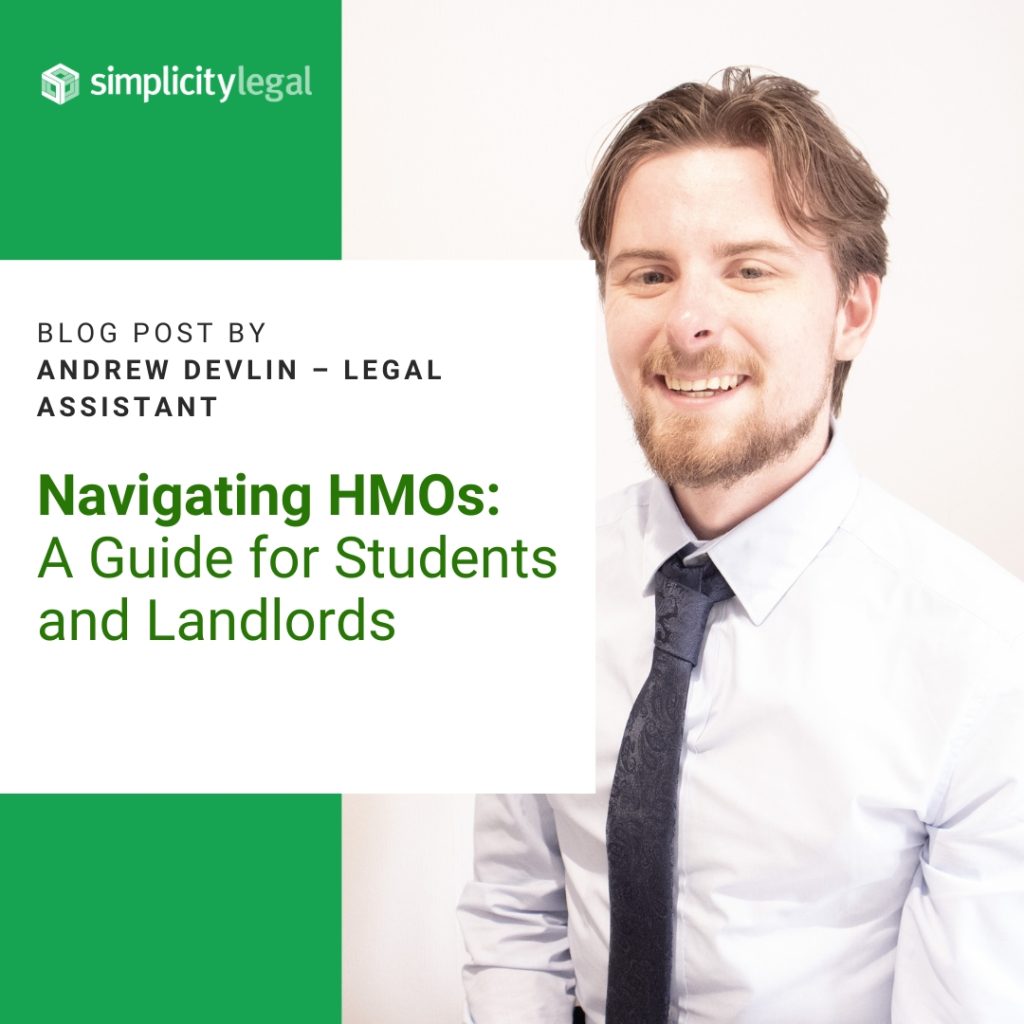
As term time for university approaches, many students may be considering moving into student accommodation. Many of these properties are classified as a house in multiple occupations, or an ‘HMO’. It is important, for both prospective tenants and Landlords, to understand what the law means by HMO.
What is an HMO?
The definition of an HMO under section 125 of the Housing (Scotland) Act 2006 is ‘any living accommodation occupied by 3 or more persons who are not all members of the same family or of one or other of two families.’
Therefore, the law says that a Tenancy is an HMO where you have three or more Tenants (who are unrelated to each other) living within the property.
HMO Licence
Under an HMO, Council tax is typically paid by the landlord of the property rather than the Tenant. However, it is important to be aware that the definition of an ‘HMO’ for tax purposes differs from the above definition.
For the purposes of tax in Scotland, HMO properties are defined differently under Schedule 1 of The Council Tax (Liability of Owners) (Scotland) Regulations 1992: ‘Dwellings occupied, or which could be occupied by persons who do not constitute a single household, and which is occupied by one or more persons each of whom:
(a) Is a tenant of, or has a licence to occupy, part only of the dwelling; or
(b) has a licence to occupy but is not liable (whether alone or jointly with other persons) to pay rent or a licence fee in respect of the dwelling as a whole’
Therefore, for tax purposes, there is no need for an HMO license so long as the property is or is capable of being occupied by two or more households. This means that, if a property is currently occupied by more than one Tenant and the Tenants do not form part of a singular household, the property will likely be considered an HMO for Council Tax purposes. Equally, the property may be considered an HMO where the property could be occupied by more than one tenant. For example, if the tenant rents a single room on a property and there are common areas, such as a shared living room or kitchen.
This means that the landlord of the property would be liable ultimately for council tax on the property.
However, a landlord may insert a clause into the tenancy agreement that allows them to recover the cost of council tax from the tenant, subject to further conditions.
If you require any assistance with your Tenancy, please get in touch with our Housing Team by calling our offices on 0141 433 2626.
Andrew Devlin is a legal assistant at Clarity Simplicity. He joined us this year and has been an asset in supporting our solicitors.
